Sample FlagSHIP Courses
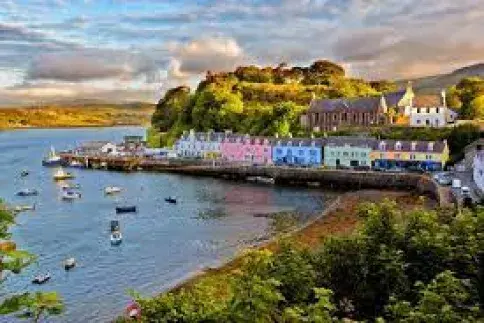
Flagler College's FlagSHIP program offers some of the most exciting, transformative opportunities of your time here.
The name stands for Flagler Sophomore High Impact Practice, one of the three pillars of our signature Flagler Core Experience. With a focus on real-world learning like Study Abroad and collaborative, community-based partnerships, the FlagSHIP program exposes you to different viewpoints, cultures, and countries. It's a required part of your Sophomore year, but you get to choose where you go and what you'll do.
Your choices for the upcoming school year will be posted in Canvas. In the meantime, here are just a few examples of past FlagSHIP courses to get you thinking about where your FlagSHIP adventure could take you.
FlagSHIP sampling
FlagSHIP sampling
When: JanTerm 2025
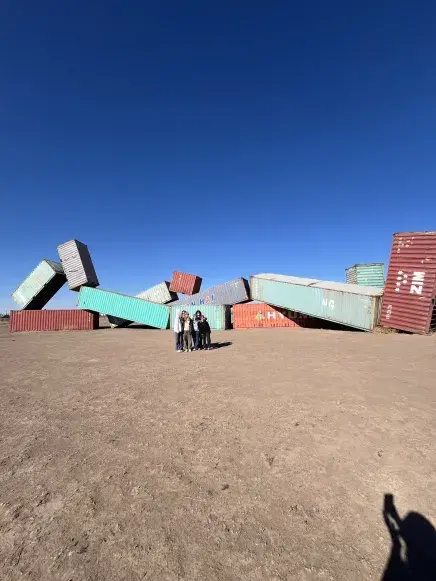
Instructor: Annie Schultz
Format: Study Away
Description: When we think about exploring diversity, plurality, and difference, our mind often goes to densely populated urban environments, where lots of people from a variety of cultural backgrounds converge and live closely together. However, this course will explore what vast, empty space can teach us about culture and art.
We will venture to the tiny town of Marfa in the high desert of far west Texas. Known since the early twentieth century for the “Marfa Lights,” a mysterious geological phenomenon, Marfa cultivated cultural lore when the minimalist artist Donald Judd made the town his home and backdrop for his art in the 1970s.
Since then, Marfa has drawn artists, musicians, writers, and the generally curious from around the world to experience the zany ethos of the 200-miles-from-anywhere art hub. But as with any iykyk place, there’s much more to Marfa than minimalist art and hipster festivals. Marfa has a long indigenous, colonial, railroad, and military history, all of which exist alongside and are entangled with the twentieth-century American art culture that consumes the town today.
These layers of history, culture, and art should resonate with us St. Augustinians; our town also has many layers and textures of art and culture informed by its layered history. Like St. Augustine, Marfa is a place to which folks flock to see interesting and beautiful art, but there’s a lot the tourist doesn’t see.
This course is about not only viewing the art of Donald Judd and other mid-late twentieth century artists amidst a striking landscape, we’ll also peel back the layers of this hipster art mecca to learn more about what was there before Judd, what the transformation of the town from middle-of-the-desert watering hole to hipster art mecca means for the people who have lived there for generations, and why, exactly, Judd chose this unique location to make a part of his work. We’ll discuss, read, and write about art, gentrification, culture, positionality, and looking and seeing.
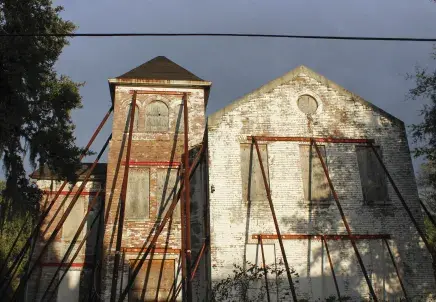
When: JanTerm 2024 and 2025
Instructor: Jason Schwab
Format: Intensive Format Seminar
Description: A Photographic Investigation of a Changing St. Augustine is a two-week intensive documentary photography course that examines the effects of gentrification on local communities within St. Augustine.
Through photography, language, and research, you will question how an influx of affluence and differing cultures may either negatively or positively affect specific communities within our city.
Each student will create a body of images from the experiences and research they encountered during the course, and then, as an entire class, we will work together to create a photographic book that synthesizes all of our work into a cohesive narrative
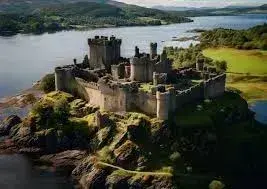
Immersion in England and Scotland: Travel Writing about the History, Culture, and People of London, Edinburgh, Inverness, Loch Ness, the Isle of Skye, and Stirling
When: Maymester 2025
Instructor: Deborah Teague
Format: Study Abroad
Description: This FlagSHIP will allow students to immerse themselves in both countries’ historical treasures, rich cultural history, and amazing beauty and interact with locals from diverse ethnicities, backgrounds, social classes, and neighborhoods.
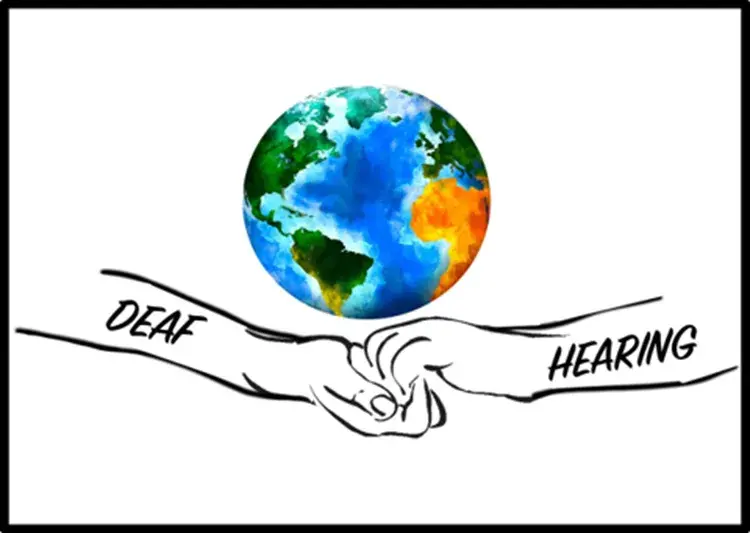
When: JanTerm 2024 and 2025
Instructor: June Ann LeFors, Jennifer Catalano
Format: Community Integrative Education (CIE)
Description: Deaf Ecosystem, a Community-Integrative Education (CIE) designated course, will provide students with a general orientation to the experiences of Deaf people including their daily life and cultural, educational, and employment experiences through an overview of the historical, philosophical, and social aspects of the lives of Deaf people in the United States. Through the exploration of the concept of the Deaf Ecosystem, students will be encouraged to form a clearer understanding and appreciation of the cultural pluralism of American society.
Deaf Ecosystem enables the empowerment, purchasing power, and economic mobility of Deaf and hard of hearing individuals by retaining and harnessing the collective socio-economic power within the community’s individuals, organizations, and businesses through community collaboration and support. The goal is for students to develop a sense of cultural humility and an appreciation of the perspectives from the Deaf community to become allies that support and participate productively in a Deaf Ecosystem.
When: JanTerm 2025
Instructor: Jessica Howell
Format: Study Abroad
Description: This FlagSHIP is an 11-day study abroad trip to the coastal city of Malindi, Kenya. While abroad, students will engage in a variety of activities, including land and water safaris, cooking and farming in local villages, and volunteering in a village school. This course is centered on the themes of culture, environment, and development. Students' experiences will highlight the intersectionality of all three and their impact on sustainability and future growth.
When: JanTerm 2024 and 2025
Instructor: Jessica Jenkins, Lori Lee
Format: Community Integrative Education (CIE)
Description: This course will explore the dynamics between culture and community in St. Augustine by focusing primarily on Native American, African American, and Menorcan experiences at the Guana Tolomato National Estuarine Research Reserve, Fort Mose, Fountain of Youth, and the Lightner Museum.
Students will learn about cultural heritage at these sites over time and contribute to our knowledge of it by engaging in oral history research, historical research, archaeology, and material culture analysis. To mitigate the loss of this cultural heritage, we will specifically focus on areas of these sites that are under high threat from human and climate impacts.
When: Maymester 2024 and 2025
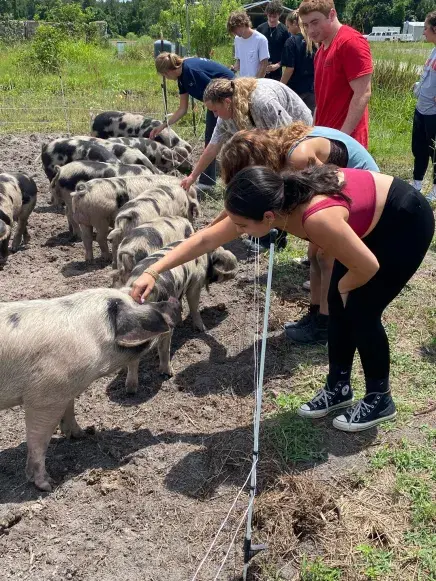
Instructor: Carrie Grant
Format: Intensive Format Seminar
Description: In this course, students will explore the farm–to–table movement. They will learn about industrial agriculture's environmental and human costs, the monoculture's threat to food security, and the negative impacts of concentrated animal feeding operations.
Students will then learn alternatives to these industrial practices by exploring organic farming techniques, vegetarian and vegan diets, and slaughterhouses and food production facilities that work. This course will include in-class work, discussions, and multiple field trips.
Students will spend a day volunteering at the local organic farm(s) (Frog Song/Ben Wells), learning firsthand from the farmers. They will also visit the farm–to–table restaurant(s) (Commander's Shellfish Camp/The Floridian) and learn about their farm–to–table techniques. They will also get a chance to explore the operations of Arcadia Farm in Washington, DC, which war veterans run.